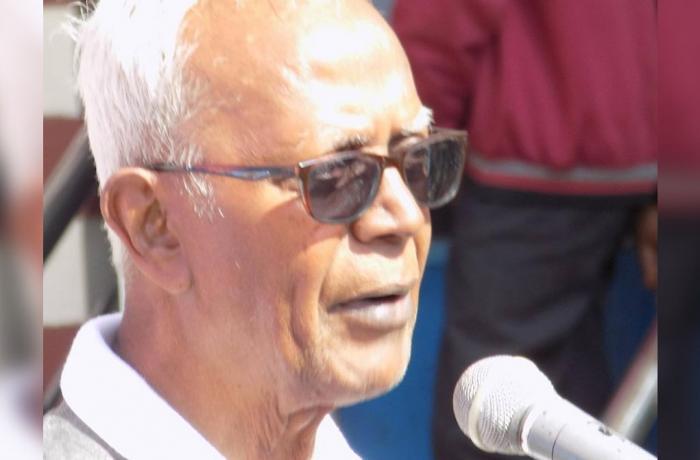Father Stan’s death a ‘stain forever’ on India’s rights record. UN group calls for an effective investigation into the elderly Jesuit priest’s custodial death
The Indian government has been urged to hold an independent probe into the arrest and custodial death of Father Stan Swamy, an Indian Jesuit priest and human rights activist.
The United Nations Working Group on Arbitrary Detention called Father Swamy’s tragic death while in custody a “failure” on the part of India’s government that would “forever remain a stain” on the country’s human rights record while referring the case to the special rapporteur on the promotion and protection of the right to freedom of opinion and expression.
The UN body in a resolution adopted recently urged India “to ensure a full and independent investigation of the circumstances surrounding the arbitrary deprivation of liberty of Father Swamy and to take appropriate measures against those responsible for the violation of his rights.”
Father Swamy, 84, died on July 5, 2021, within a couple of days of his health deteriorating at a Catholic-managed hospital in Mumbai, the capital of the western Indian state of Maharashtra.
He was jailed on Oct. 9, 2020, after being arrested by the National Investigation Agency (NIA), India’s premier anti-terror agency, from his home in Ranchi, the capital of Jharkhand state in eastern India.
He was among 16 accused put behind bars in connection with the 2018 Bhima Koregaon violence in Maharashtra that left one person dead and several others injured.
The elderly Jesuit priest was accused of several charges including collaborating with outlawed Maoist insurgents to overthrow the federal government and charged under the provisions of India’s stringent Unlawful Activities Prevention Act (UAPA).
Catholic bodies and various human rights groups disagreed with the government action, calling it retribution for Father Swamy’s long crusade against the state for the human rights of the poor and illiterate indigenous people in Jharkhand.
The UN Working Group on Arbitrary Detention last November adopted a resolution, the final version of which was released recently. It said that “there was no legal basis for the detention of Father Swamy” and “the officials of the National Investigation Agency arrested him in an irregular manner.”
“On Oct. 8, 2020, the three officials who picked up Father Swamy at his residence were not in uniform and were not wearing accurate, visible and clear identification or name tags designating them as National Investigation Agency officials; nor were they the same officials who had come earlier to Bagaicha (his residence) to interrogate him,” the group stated
“National Investigation Agency officials did not show Father Swamy any warrant or summons. In addition, they were accompanied by the police. Since this departed from the previous practice followed by agency officials when Father Swamy was interrogated in July and August 2020, at which time they had presented their identity cards, Father Swamy initially refused to go with them. However, when the officials began to threaten the director of the Bagaicha campus with arrest when he asked to see a warrant for the arrest of Father Swamy, he agreed to go with the officials despite the lack of a warrant.
“No one from the Bagaicha campus was formally informed of the reasons why the authorities were taking Father Swamy away from the campus.”
The UN body also noted that “at the time and place of his arrest, Father Swamy was not informed of the grounds of his arrest, as prescribed [in Indian laws].”
“The nature of the investigation by the National Investigation Agency seemed to not have any connection with the Bhima Koregaon case, in which Father Swamy was initially treated as a ‘suspected-accused’ and, as a result, had his residence raided twice on August 28, 2018, and June 12, 2019,” the resolution said.
The resolution further highlighted the fact that the Jesuit priest’s name never appeared in the initial first investigation report recorded after the Bhima Koregaon violence and he was not called for any inquiry or interrogation at that time.
It was much later that the “National Investigation Agency attempted to establish personal links between Father Swamy and his organization and the Maoists. Father Swamy denied those allegations … he was never associated with the Bhima Koregaon protests nor had he attended those protests,” it said.
On the alleged recovery of materials from his computer suggesting his link with the outlawed Maoists, the UN body noted that “Father Swamy’s electronic devices were seized during the two raids carried out by the authorities on August 28, 2018, and June 12, 2019, and that those devices were not indicated to him as containing any illegal content at the time.”
The working group also urged the government “to accord his family an enforceable right to compensation and other reparations, in accordance with international law” as an appropriate remedy even as Jesuits in India are fighting in court to clear the “odium of his guilt” after his custodial death.






